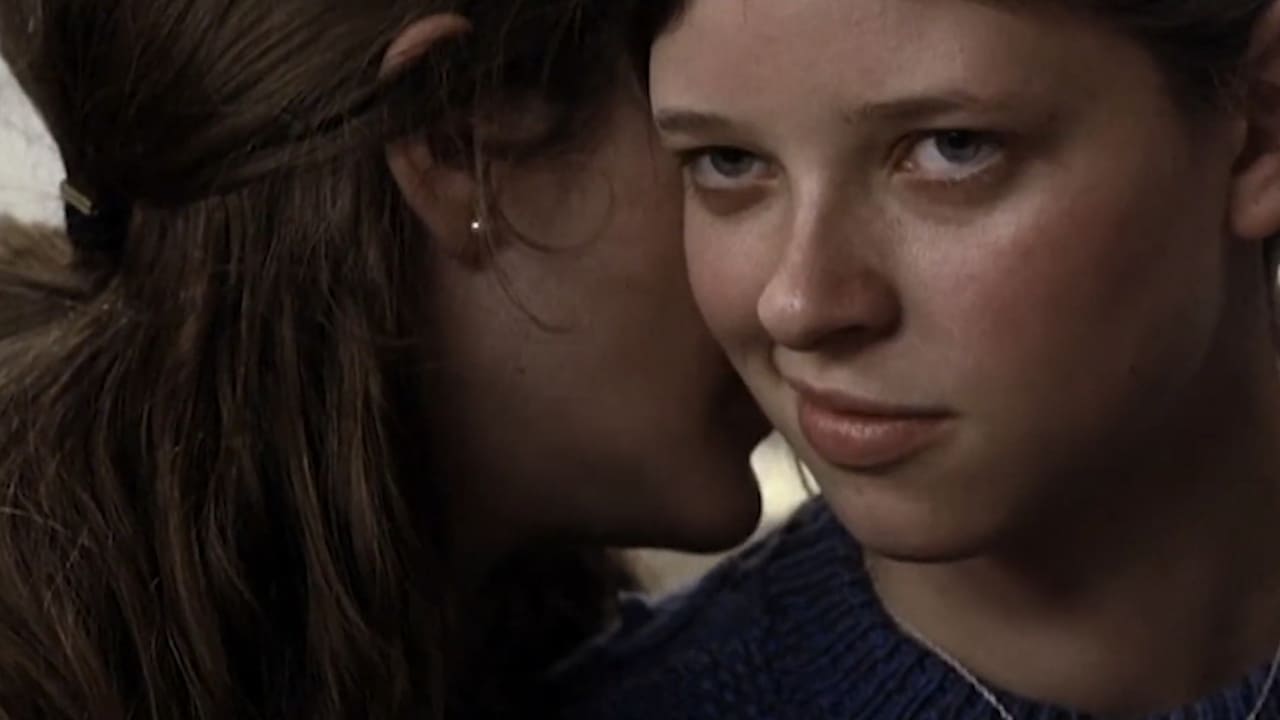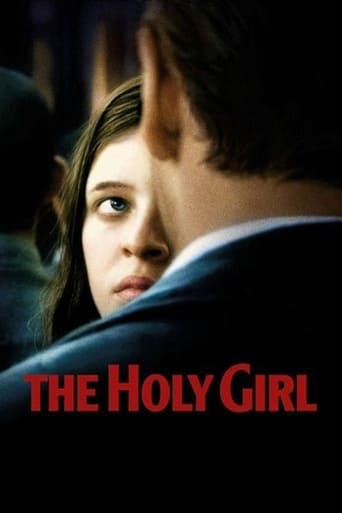



The performances transcend the film's tropes, grounding it in characters that feel more complete than this subgenre often produces.
View MoreAt first rather annoying in its heavy emphasis on reenactments, this movie ultimately proves fascinating, simply because the complicated, highly dramatic tale it tells still almost defies belief.
View MoreThis is one of the best movies I’ve seen in a very long time. You have to go and see this on the big screen.
View MoreGreat movie. Not sure what people expected but I found it highly entertaining.
View MoreEven though the discovery of one's burgeoning sexuality is a common theme in cinema, "La niña santa" ("The Holy Girl" in English) still bears watching. Teenage girl Amalia has two experiences in a dilapidated hotel that will change her life forever: an exploration of her sexuality with her friend Josefina, and a microaggression from a doctor.The significance of Amalia's Catholic schooling was ambiguous. The movie makes clear that Amalia thinks that she has to save the doctor from this inappropriate behavior. What I couldn't quite figure out was whether the movie treated her Catholicism as a virtue or a problem. In the end, what's important is the focus on the contrast between sexual vulnerability and sexual power. Having seen this movie, I hope to see more movies by Lucrecia Martel.
View MoreAs far as I'm concerned, the film is an outstanding achievement in cinematic narrative, I'm tentatively including it as one of the very best I have seen. A lot of viewers have complained about the slumbering, monotonous tone and the filmmaker's insistence to not explain her vague story, which capped off by the high-handed gesture of the ending—the only note off for me—can give the impression that this is another in a long list of 'artsy', fashionably minimal film festival fodder. Fair points, but consider something else.The story is fairly simple, a Catholic girl looks to save the soul of a middle- aged doctor.I'm not sure if Lolita was consciously the template, indeed the film differs in obvious ways—the doctor makes covert sexual advances, but he is a sincerely troubled man, and from her end the girl perceives these to be a sign from god that this man has strayed and needs saving. There is family dysfunction as background and a lot of religious talk on the divine plan. But there is something deeper Lolitaesque, more in a while.Okay so the basic means of expression are in Altman's mode of narrative drifting, but with the difference of a static camera and the drift carried through in the movement of bodies and sound. If you read up on what the filmmaker has to say, she reveals stumbling on to this in an interesting way, not via film school but intimate observations of family. She seems like an alert, curious mind who likes to observe, the basis of everything.The film begins in a shapeless, rumbling state, and only gradually establishes a few things; the place is a hotel, a doctors' convention is scheduled to take place, the man is married with kids, the girl's mother is divorced. It only begins to acquire shape when both the girl and her mother take an interest in the sullen man. Ordinary so far.Here's where it gets really cool.The notion is that there is a a sign which female intuition picks up, the sign kicks off a story of connection, but for obvious reasons the story cannot be consummated in the open, it has to be submerged, disguised for busy, prying eyes. (the hotel residents' as well as our own)But now look at all these different things going on. A man in the shop window who creates invisible sounds and draws a crowd enthralled at the mystery of his creation, the remote sounds of hunters' gunfire which alarm the girl in the woods to something horrible, the talk of an invisible godvoice, the mother's unexplained persistent earbuzz. Both the mother and the doctor have acted in plays (the doctor as a doctor!), and a doctor- patient re-enactment before an audience is proposed to the mother by the taciturn doctor. And the most revealing, another doctor is caught in mischief with a young girl, which foreshadows shame and public embarrassment.The core scene that perfectly encapsulates what this is all about, is when we discover how the man in the shop window has been producing his peculiar sounds—a theremin, calligraphic hands drawing from thin air the shape of sound, something out of nothing, which is a stunning metaphor for the urges that overtake us in life.So as characters move through the world, they draw illusory currents in the air which on the topmost level acquire dramatic shape that reveals soul. It is this that masterfully recalls Lolita and in a far deeper way than either of the two film adaptations—a story which is both the story and faintly reveals the haze of urges (sexual, spiritual) of hidden inner selves as they shift and shiver behind their acceptable roles in that story.Each of these things amazes. I was in awe of a few.Together, they suggest one of the brightest, most intelligent voices in film these days, one of perhaps only three working right now for me. What's keeping her back? For my taste, the unoriginal camera. She just hasn't yet discovered her own calligraphic eye that will set her apart, though I'm sure that is in her future. For all I know, she has found it in her next film.I wish her the best of luck. In the meantime, see this and contemplate on the rich tapestry she has woven.
View MoreYesterday, in my lunch time, I saw this new-released DVD on sale in a store. I had no information about "La Niña Santa", but its cover had the symbols of participation in the Cannes, Toronto and New York Festivals, and four favorable reviews (from "Le Monde", "Premiere", Sergio Rizzo (unknown for me) from the "Folha de São Paulo" and "New York Times"). When I read the name of one of the producers, Pedro Almodóvar, and that this movie was awarded in the "Mostra International de Cinema de São Paulo", I unfortunately decided to buy it."La Niña Santa" is one of the worst movies I have ever seen. The screenplay is terrible: the viewer can see that the story is in a Latin country (Argentina indeed), but the explanation is only found reading the cover of the DVD. It takes thirteen minutes to understand that the location is a hotel welcoming a conference of physicians and surgeons. The group of gossipy girls in a choir is never explained if they belong to a church or school. The amateurish framing recalled my son, when he was a baby boy and had some trouble to use the camcorder, cutting heads, shoulders, legs of feet in his footages; the same happens along the whole movie. Based on the foregoing remarks, the poor direction is simply terrible. Last but not the least, even the cast composed by ugly actors and actress is not attractive. My advice: although having a great lobby, do not waste your time and money in this crap. My vote is one.Title (Brazil): "A Menina Santa" ("The Saint Girl")
View MoreBeer is not needed for this movie but rather awareness. Awareness for the sublime and an understanding of subtle expressions of art. The director, Lucrecia Martel, captures the plight of a young girl's unfortunate lost of innocence elegantly. La Nina Santa, also involves two best friends and their dealings with the opposite sex and religion. One of the girls deals with someone of her own age and the other girl deals with someone old enough to be her father. Interestingly, the older gentlemen(smile) who is must come to terms with dealing with a younger girl also must face the fact that the girl's mother takes a liking to him. There is a minimalist and mystic approach to this film, in other words, do not expect easy answers or easy solutions but rather you are looking out of a window and gazing at a situation that involves people and their belief systems.
View More